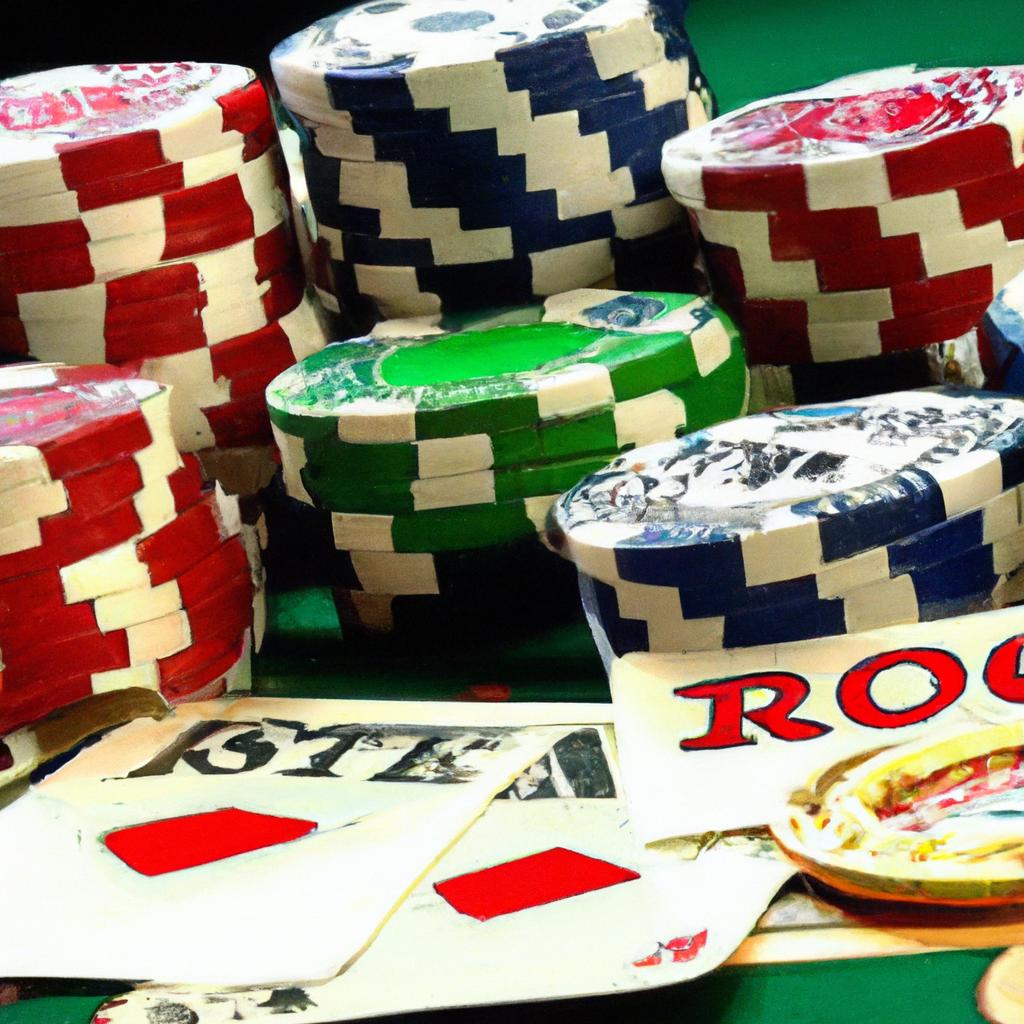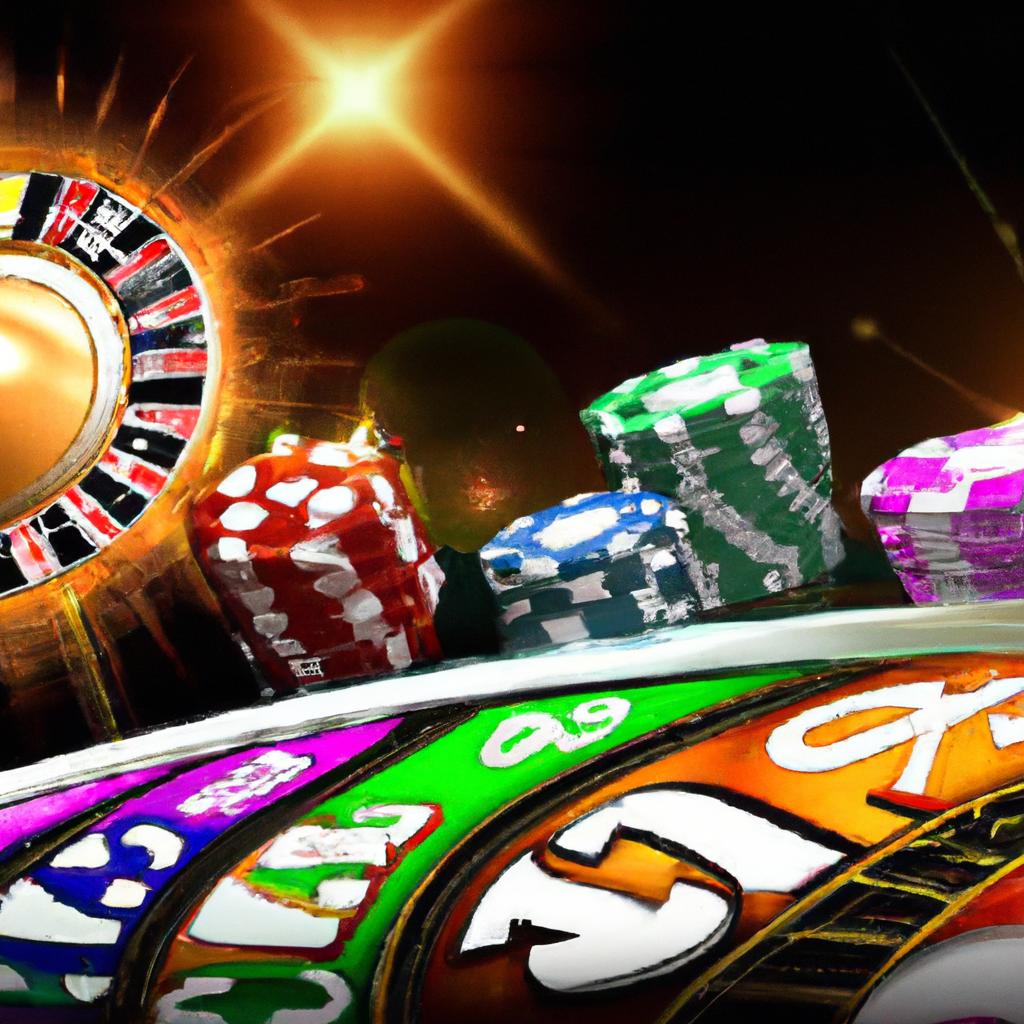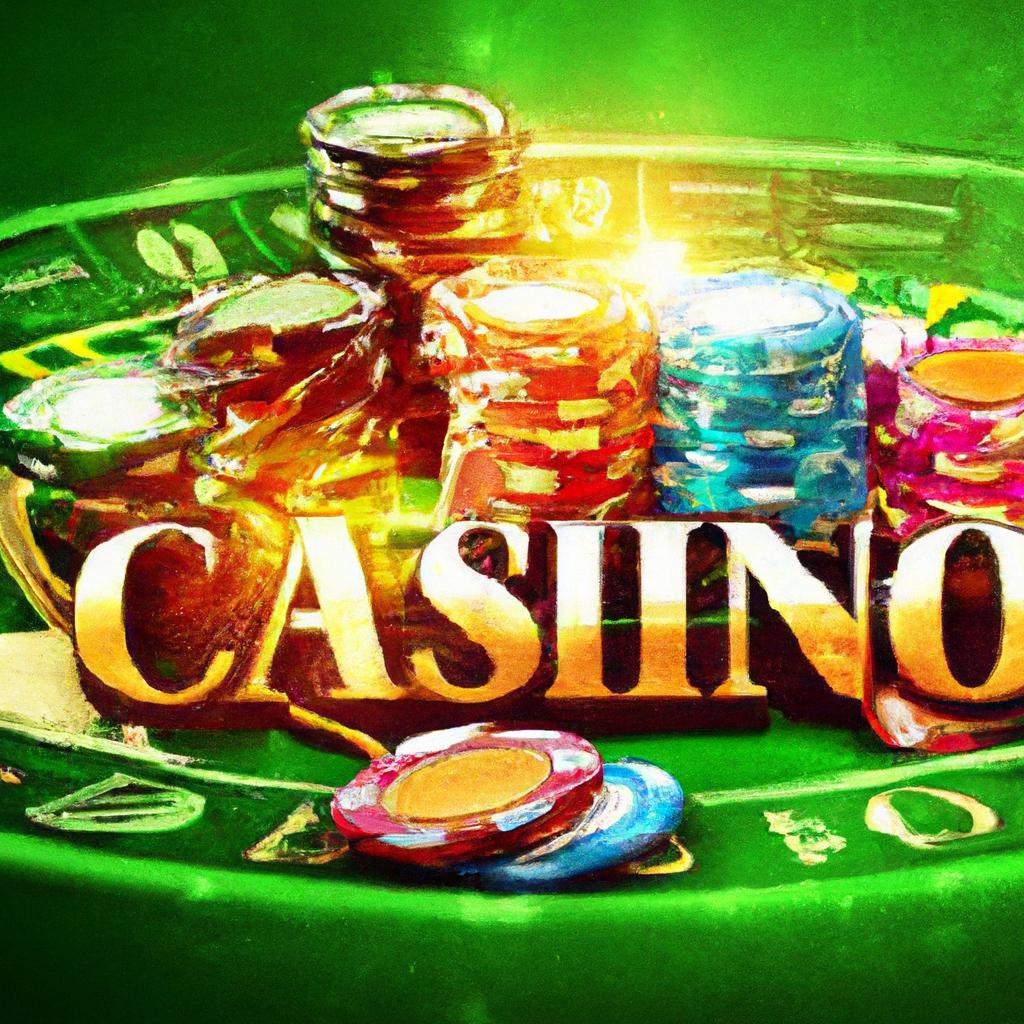The Hidden Game: Unpacking Casino Payouts
Step into the vibrant world of casinos, where the thrill of chance collides with the allure of excitement. Amidst the flashing lights and the rhythmic clatter of chips, one elusive aspect often remains shrouded in mystery: casino payouts. For both seasoned gamblers and curious newcomers,
understanding how payouts work is crucial for navigating the exhilarating yet complex landscape of gaming. In this article, we will delve into the mechanisms behind casino payouts, exploring the intricacies that dictate how much players can expect to win—or lose—during their time at the tables. Whether you’re playing a high-stakes poker game or trying your luck on a slot machine, a deeper comprehension of payouts can transform your gaming experience, empowering you to make informed choices in a realm where fortune is forever at play.
Table of Contents
- Understanding Casino Payout Percentages and Their Impact on Player Strategy
- Exploring the Factors That Influence Casino Payouts
- Maximizing Your Winnings: Tips for Choosing High-Payout Games
- The Importance of Bankroll Management in Achieving Casino Success
- Q&A
- Closing Remarks

Understanding Casino Payout Percentages and Their Impact on Player Strategy
Casino payout percentages, often referred to as Return to Player (RTP), play a crucial role in shaping a player’s gaming experience. These percentages indicate the average amount of money a player can expect to receive back from wagers over time, typically presented as a percentage. For instance, a slot machine with a payout percentage of 95% statistically returns 95 cents for every dollar wagered. Understanding these figures can significantly influence player strategy, as games with higher RTPs offer better chances for returns. Players may choose to adjust their game selection based on this knowledge, gravitating toward options that maximize their potential for profit.
Moreover, it’s essential for players to recognize that payout percentages vary widely across different types of games. While table games like blackjack or poker often have higher RTPs when played optimally, slot machines tend to offer lower payouts but with higher variance, leading to exciting yet unpredictable results. Players should consider factors including the game’s volatility and their own risk tolerance when formulating strategies. Key considerations include:
- Game Type: Slots vs. Table Games
- Payout Frequency: High vs. Low Variance
- Personal Skill Level: Understanding Optimal Strategies
| Game Type | Average RTP | Volatility |
|---|---|---|
| Slots | 85% – 98% | High |
| Blackjack | 99%+ | Low |
| Roulette | 94% – 97% | Medium |

Exploring the Factors That Influence Casino Payouts
Casino payouts are influenced by a myriad of factors, each intertwining to create the dynamic environment that players experience. Among the most significant contributors are the game type, house edge, and random number generators (RNGs). Different games possess varying payout structures; for instance, slot machines typically feature higher house edges than table games like blackjack or baccarat. Understanding these nuances can drastically change a player’s experience and expectations, as tables often have rules that govern payouts which can be unfavorable or beneficial depending on the player’s strategy and choice of game.
Additionally, the location of a casino and its regulatory framework play crucial roles in determining payout rates. Casinos in different jurisdictions may offer varying payout percentages; for instance, certain states mandate specific payout minimums for slot machines that can exceed 90%. The operational expenses and marketing strategies of the casino also significantly impact how much they can afford to return to players. To visualize these correlations, consider the following table:
| Game Type | Average Payout Percentage | House Edge |
|---|---|---|
| Slot Machines | 85% – 98% | 2% – 15% |
| Blackjack | 95% – 99% | 1% – 5% |
| Roulette | 94% – 97% | 3% - 6% |
These factors demonstrate the complex web of influences at play within the casino ecosystem. Players often rely on anecdotal experiences or generalizations when determining which games might offer better payouts. However, a more informed approach, considering the intertwining elements of game mechanics, location, and regulations, can empower players to make educated decisions that enhance their gaming experience at places like www.betreward.com.

Maximizing Your Winnings: Tips for Choosing High-Payout Games
When it comes to enhancing your gaming experience and boosting your potential earnings, selecting the right games is crucial. Here are some essential strategies to consider that can lead you to high-payout options:
- Research Return to Player (RTP) percentages: Always check the RTP of the games you intend to play. Games with an RTP of 95% or higher are generally more favorable.
- Explore Variance Levels: Understand the difference between high and low variance games. If you prefer steady wins, low variance games might suit you, while those seeking larger jackpots may opt for high variance.
- Check Game Providers: Certain developers are known for creating games with better payout rates. Invest your time in titles from reputable sources.
- Watch for Progressive Jackpots: While they can be unpredictable, games with progressive jackpots offer the chance for massive payouts, boosting your overall potential.
Utilizing these strategies will not only enhance your overall casino experience but also provide you with a better understanding of where to maximize your stakes. For those who love exploring high payout tables, consider this simple comparison of popular game types:
| Game Type | Typical RTP | Variance Level |
|---|---|---|
| Slots | 90-98% | Varies (Low to High) |
| Blackjack | 99.5% | Low |
| Baccarat | 98.94% | Low |
| Video Poker | 96-99% | Low to Medium |
By considering these insights and resources, players can enhance their strategies further. If you are interested in deepening your knowledge of casino games and their payouts, visit www.betreward.com for expert guidance.

The Importance of Bankroll Management in Achieving Casino Success
Effective bankroll management is a crucial component for anyone serious about finding success in the realm of casinos. Without a structured approach to how much you invest and lose, even the most well-planned strategies can quickly dissolve into chaos. By implementing sound financial practices, players can extend their playtime, enjoy the experience, and increase their chances of turning a profit. Key aspects of bankroll management include:
- Setting a budget: Determine a fixed amount you are willing to spend and stick to it.
- Dividing your bankroll: Spread your funds across multiple sessions or games to mitigate risk.
- Knowing when to walk away: Understand your limits, and don’t chase losses.
Moreover, tracking your expenses and winnings provides insights that can refine your gaming strategies. Players who keep meticulous records are often better equipped to identify patterns that lead to success. A simple table to track your performance might look like this:
| Date | Game Played | Initial Bankroll | Final Bankroll</th | Profit/Loss |
|---|---|---|---|---|
| 01/01/2023 | Blackjack | $150 | $180 | $30 |
| 01/05/2023 | Slots | $100 | $50 | -$50 |
The focus on discipline and monitoring can ultimately lead to informed decisions that enhance the overall gaming experience. For more strategies and tips on effective casino play, visit www.betreward.com.
Q&A
Q&A: Understanding Casino Payouts
Q1: What are casino payouts?
A1: Casino payouts refer to the percentage of total wagered money that a casino returns to players over time. This figure is crucial for understanding the potential returns when playing various games, be it slots, table games, or poker.
Q2: How is the payout percentage determined?
A2: The payout percentage, often referred to as Return to Player (RTP), is calculated by taking the total amount paid out in winnings and dividing it by the total amount wagered. For example, if a slot machine has a payout percentage of 95%, it means that for every $100 wagered, the machine pays back $95 on average, though this is over the long term.
Q3: Are all games in a casino the same in terms of payouts?
A3: No, not all games offer the same payouts. Generally, table games like blackjack and poker tend to have higher RTPs compared to slot machines. Within the slot category, different machines have varying payout percentages, influenced by their design, volatility, and thematic elements.
Q4: What factors influence casino payouts?
A4: Casino payouts can be influenced by several factors, including game type, house edge, player skill level (as seen in games like poker), and the casino’s operational choices. Additionally, the more complex a game’s mechanics, often the greater the variance in outcomes, affecting the overall perceived payouts.
Q5: Can players find out the payout percentages for games?
A5: Yes, many reputable casinos make their payout percentages known. You can typically find this information on the casino’s website or posted near the gaming area. Slots often list their RTP rates, while table games may have guidelines on expected returns based on optimal play strategies.
Q6: What does it mean if a casino has a low payout percentage?
A6: A low payout percentage means that a casino retains a larger share of the wagers made, indicating that players have a lesser chance of winning back their stakes over time. While this might make for higher short-term profits for the casino, it can result in a less favorable experience for players.
Q7: Should players only consider payout percentages when choosing games?
A7: While payout percentages are an important factor, players should also consider game volatility, personal preference, and playing strategies. Some players may enjoy lower RTP games for the thrill of larger jackpots, while others might prefer high RTP games with more consistent winnings.
Q8: How do jackpots interact with payout percentages?
A8: Jackpots can have a complex relationship with payout percentages. Progressive jackpots, which grow larger as players place bets, often have lower base payouts. However, their potential for significant wins can attract players. Thus, while a game may seem to offer poor payouts, the possibility of a large jackpot can enhance its overall attractiveness.
Q9: Is it possible for players to influence their payout outcomes?
A9: While players cannot change the fundamental odds set by a game’s design, they can influence their outcomes through skillful play in games like poker and blackjack. For slot machines, choosing games with higher RTPs and understanding the game’s rules can enhance the player’s experience, but luck remains a dominant factor.
Q10: What should players keep in mind about casino payouts?
A10: Players should remember that while payout percentages provide a helpful guideline, gambling should always be viewed as a form of entertainment rather than a reliable way to make money. Understanding the odds and playing responsibly can lead to a more enjoyable casino experience.
Closing Remarks
As we draw the curtains on our exploration of casino payouts, it becomes clear that the world of gaming is as multifaceted as the games themselves. With every spin of the wheel or flip of the card, players navigate a landscape shaped by luck, strategy, and the ever-important odds. Understanding the nuances of payout percentages and the house edge can empower players to make informed decisions that align with their personal gaming philosophies.
Ultimately, whether you walk away with a pocketful of winnings or simply a memorable experience, the allure of the casino remains as irresistible as ever. It’s a realm where fortunes can change in an instant, all while captivating us with the thrill of possibility. So, whether you’re a seasoned high roller or a curious newcomer, remember that in the game of chance, knowledge is just as valuable as luck. Happy gaming, and may your next visit be filled with excitement, strategy, and perhaps a few fortunate surprises.